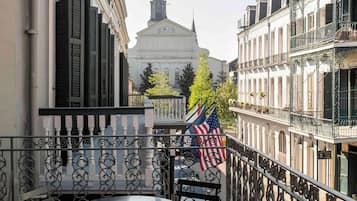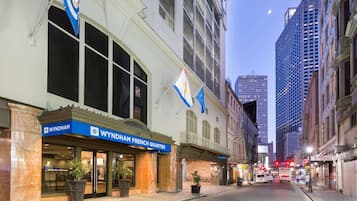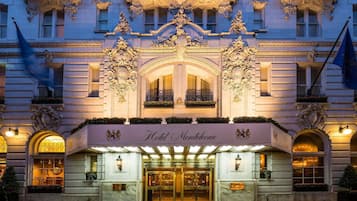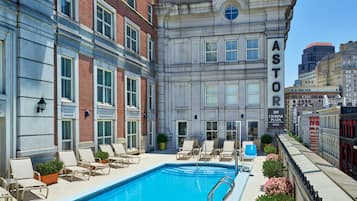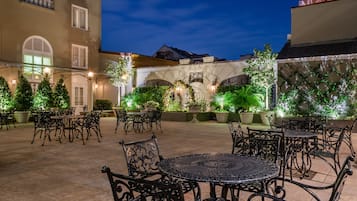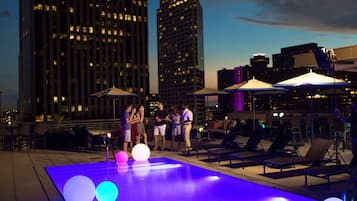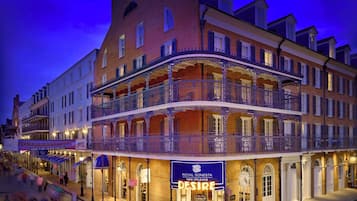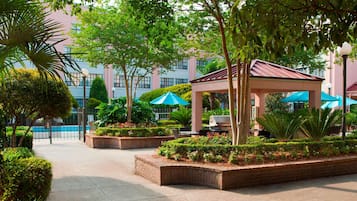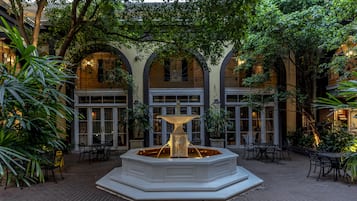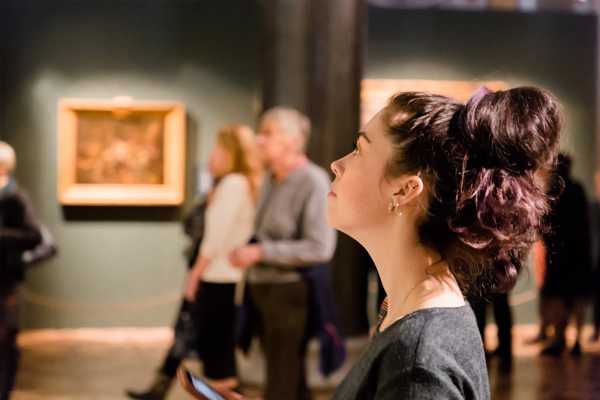Canal Street cuts through the very heart of New Orleans. Bisecting the rollicking French Quarter and the uber-cool Warehouse District, it's one of the main thoroughfares of the city. Everyone should pay a visit, whether for shopping, neon-lit theatres, the bars or the wild Mardi Gras parades. It's a quintessential Big Easy spot.
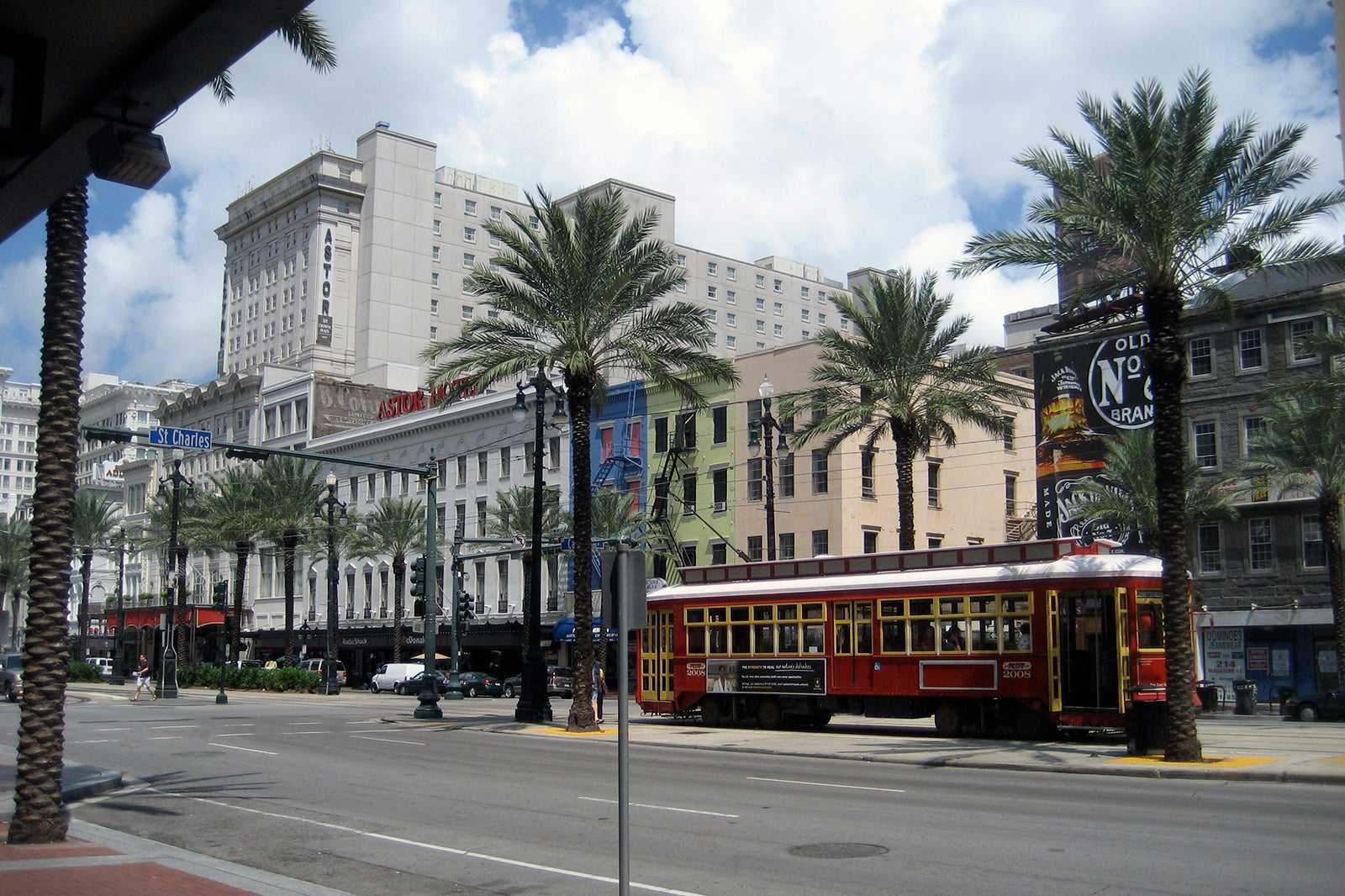
mynd frá Infrogmation of New Orleans (CC BY-SA 3.0) breytt
A brief history of Canal Street in New Orleans
Canal Street was once supposed to be an actual canal. The idea was to divide the Creole and American populations of the city using one clear waterway. That was never laid, but the so-called "neutral ground" of the boulevard seen today did take shape in the late 18th century.
Later, around the middle of the 1800s, the strip was elevated to NOLA's answer to NYC's Fifth Avenue. Department stores like Godchaux's, D. H. Holmes and the Maison Blanche brought in a glitzy clientele. There were elegant Art Deco cafés. There were beautiful ballrooms in the Jung Hotel and opulent LaSalle Hotel.
After a short downturn in the 1960s and 1970s, Canal Street is once again staking its claim as one of New Orleans's most happening areas.
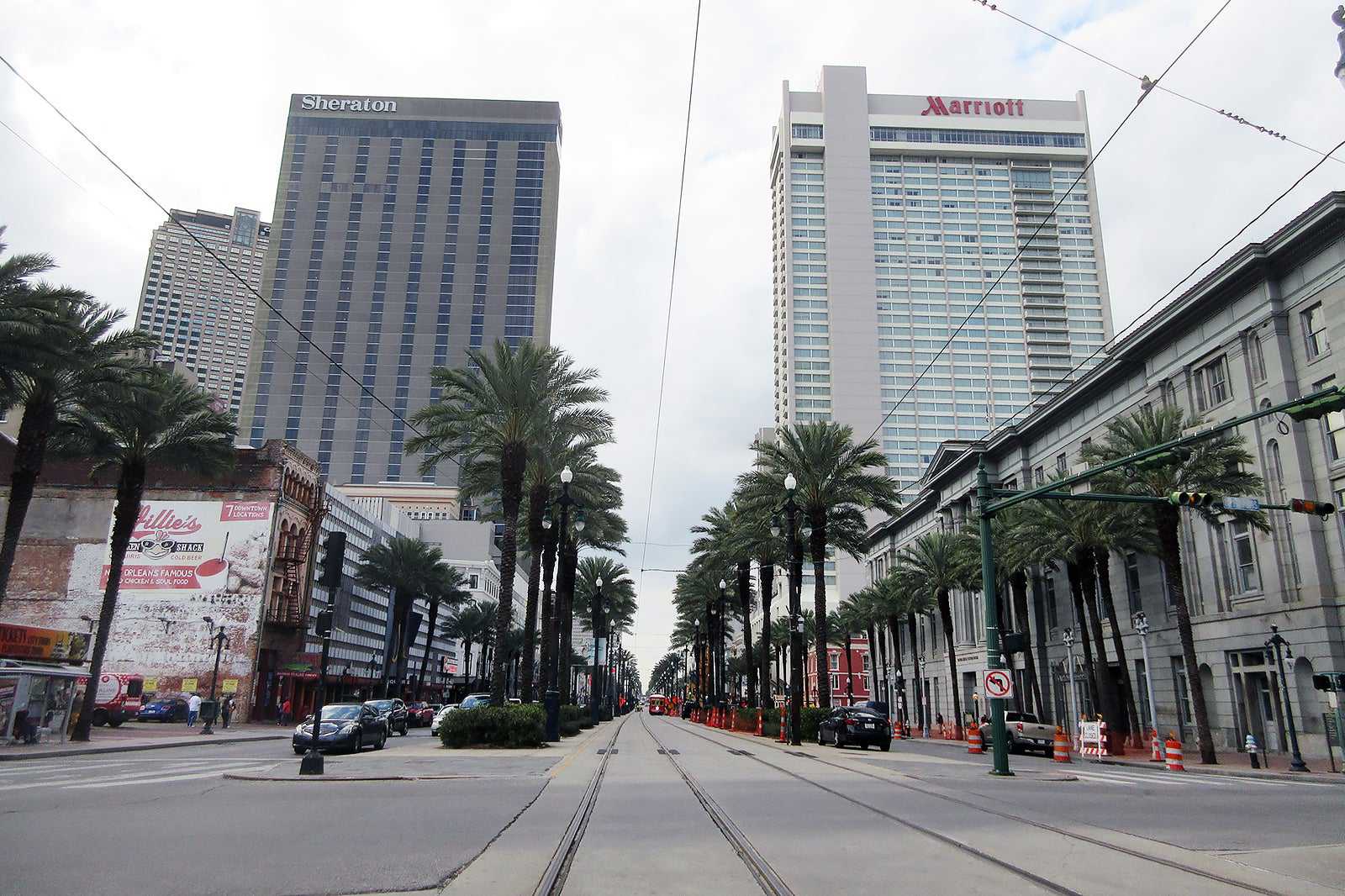
mynd frá Infrogmation of New Orleans (CC BY-SA 4.0) breytt
What are the highlights of New Orleans' Canal Street?
Canal Street boasts arguably the best shopping scene in the Big Easy. But it's more than a place of clicking tills. You'll find a wild nightlife offering that gets positively pumping down in the Harrah's Casino, which is one of the biggest gaming halls in town.
There are also plenty of sleek cocktail bars done out in the style of age-old NOLA and serving tasty Sazerac cocktails – you can even trace the history of that local tipple in the Sazerac House museum.
Canal Street has a fine theatre selection to boot. The Saenger Theater is the star-studded venue, with its box office of Broadway shows. Then there's the vaudeville Orpheum Theater of 1921, where the stage hosts everything from rap artists to jazz singers to comics.
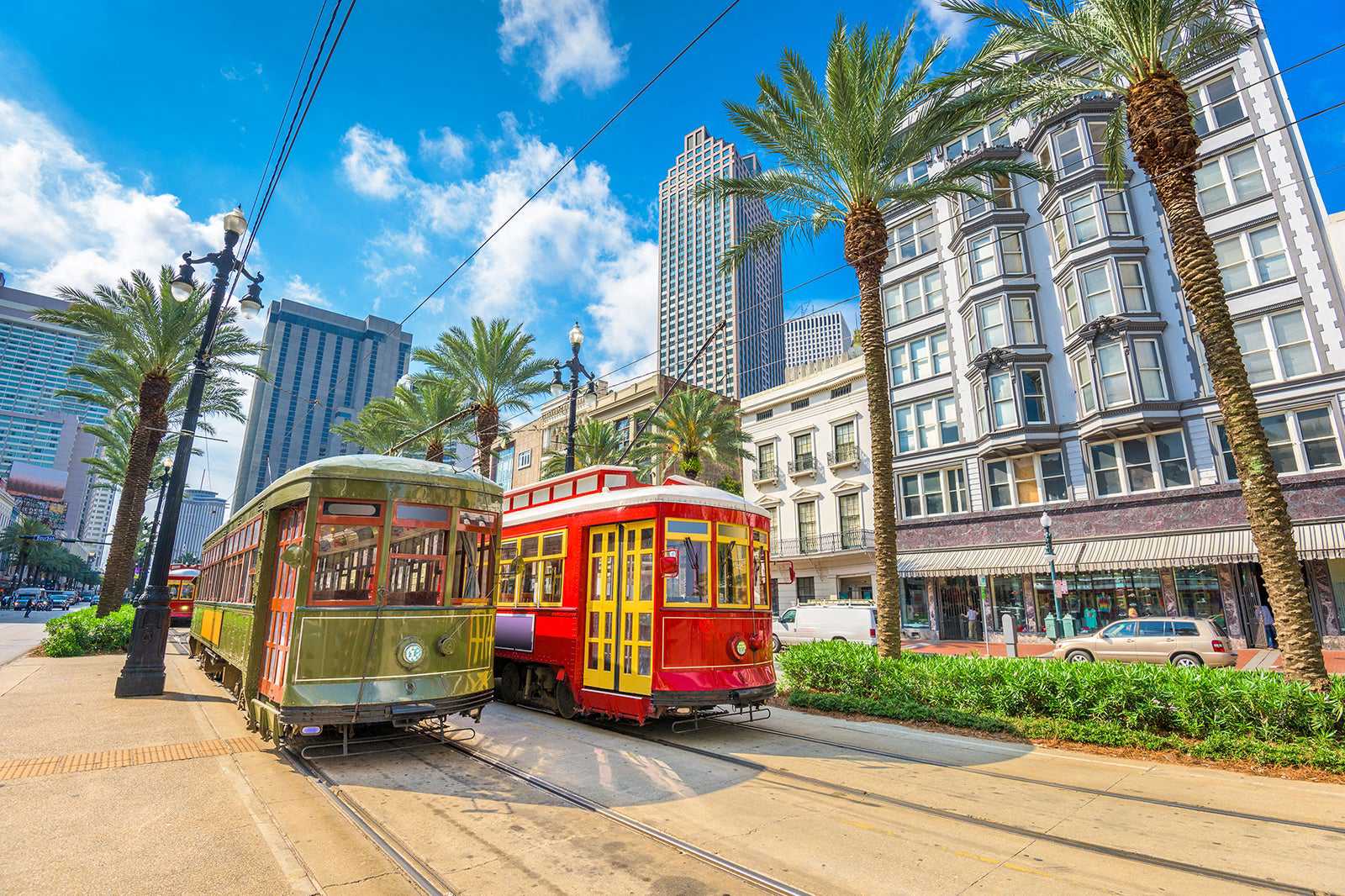
Where to shop on Canal Street in New Orleans?
Shopping is arguably the best thing to do on Canal Street. Most of the vintage department stores are indeed gone. But some traces of their classic retailers remain, in the form of artisan headwear atelier Meyer the Hatter and menswear store Rubensteins to name a few.
They all now share pavement space with new and exciting shopping precincts. The jewel in the crown is the Shops at Canal Place. It's right at the Mississippi end of the street, hosting Saks Fifth Avenue and Jo Malone cosmetics and bespoke jewellers alike.
On top of that, Canal Street provides easy access to some of the best independent shops in the city. They hide down Magazine Street, Camp Street and Bourbon Street to the north and south, filled with edgy galleries and antique emporiums.
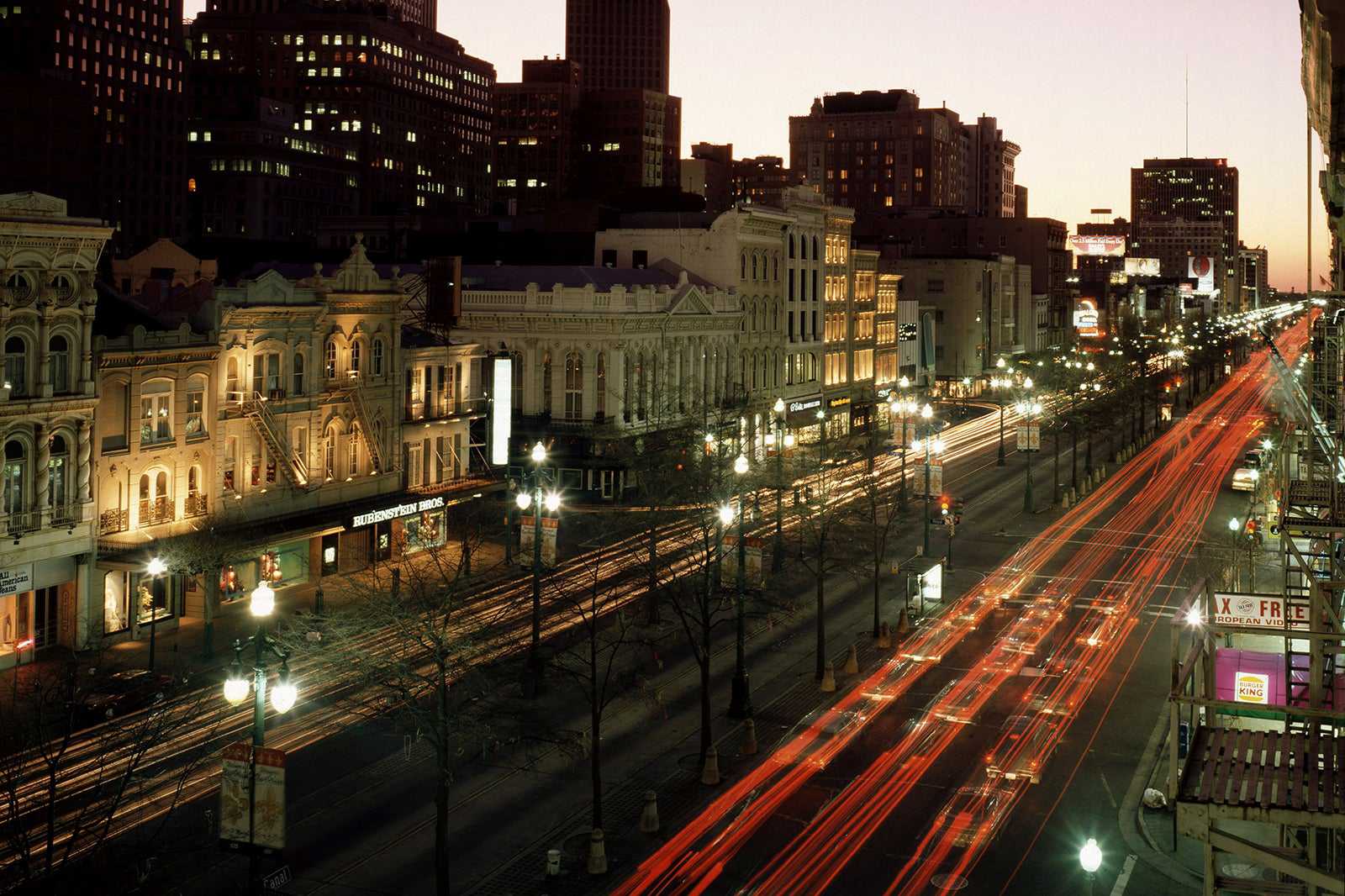
Good to know about Canal Street
Canal Street should be easy to find. It cuts through the downtown core of New Orleans, with the French Quarter – the main visitor area – to the north and the stylish Warehouse District to the south. If you don't feel like walking there, you can always catch a tram. They come in regularly from both the Mississippi riverside and the Mid-City.
Parking is hard to come by on Canal Street, although there are some paid spots on the streets to the north and south. Forget finding a space for the car around the Mardi Gras parade in February. That sees the whole strip packed with processions, dancers, and floats. You'll want to book your hotel early if you plan on visiting then and staying nearby.


